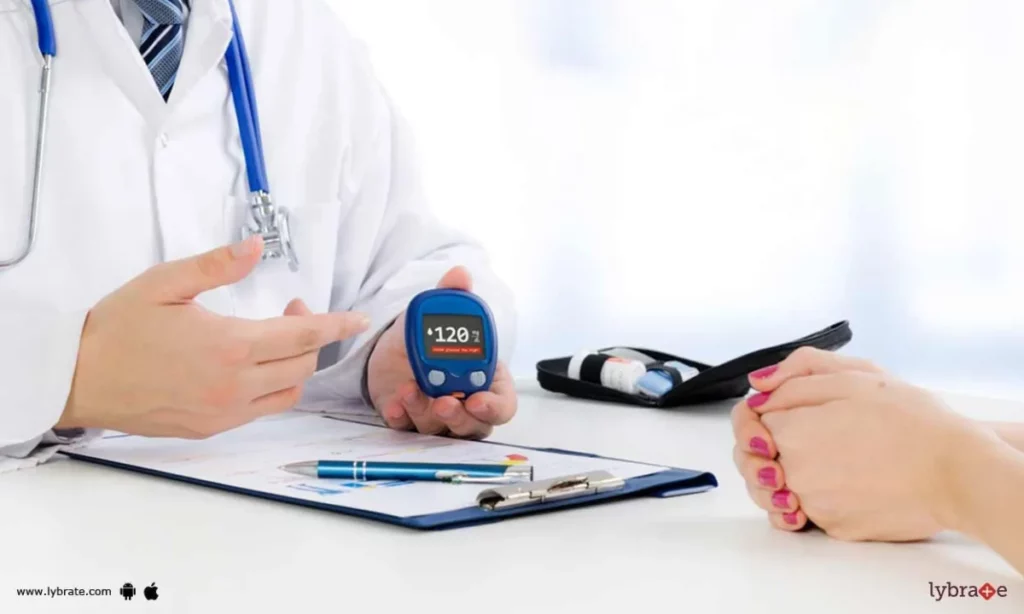
Introduction:
Endocrinology and diabetes management are important aspects of health care, especially for those dealing with chronic conditions such as diabetes. In recent years, Thailand has gained recognition as a center for specialized endocrinological care and diabetes management for patients in the Middle East. With world-class medical facilities, renowned endocrinologists, and a welcoming environment, Thailand offers a unique combination of expertise and compassion to address the complex needs of patients. In this article, we explore why Middle Eastern patients are turning to Thailand for endocrinology and diabetes management and highlight the unique factors that make Thailand a preferred destination for their healthcare travel.
The benefits of choosing Thailand for endocrinology and diabetes management for Middle Eastern patients:
1. Highly Skilled Healthcare Professionals: Thailand boasts a pool of highly skilled endocrinologists, diabetologists, and healthcare professionals who have trained locally and internationally. Patients in the Middle East can trust the expertise of the medical team.
2. Modern medical facilities: Thailand has a first-rate healthcare infrastructure, with cutting-edge hospitals and clinics outfitted with cutting-edge equipment for diagnosis and treatment. This guarantees that patients get the most modern treatment possible.
3. Personalized Treatment Plans: Thai healthcare providers take a patient-centered approach, tailoring treatment plans to each patient’s individual needs and preferences. This level of personalization increases the effectiveness of diabetes management.
4. Cultural Sensitivity: Thai healthcare providers are known for their cultural sensitivity and empathy, which is vital for Middle Eastern patients navigating the emotional and psychological aspects of living with diabetes.
5. Cost-Effective Care: Thailand offers high-quality healthcare at a fraction of the cost compared to many Western countries. This affordability factor, combined with the standards of care, makes Thailand an attractive choice for patients seeking diabetes management.
Thai endocrinology and diabetes care has certain particularities
1. Holistic approach to care: Thai healthcare providers often take a holistic approach to endocrinology and diabetes management, recognizing that diabetes affects many aspects of a person’s life. Thai endocrinology and diabetes care has certain particularities:
2. Patient education: Diabetes management in Thailand emphasizes patient education. Middle Eastern patients receive comprehensive information on managing their condition, including dietary guidelines, lifestyle recommendations, and self-monitoring techniques.
3. Supportive diabetes communities: Thailand has a growing network of support groups and communities for people with diabetes These communities provide a sense of togetherness and shared experience for Middle Eastern patients.
This strategy takes into account one’s emotional, mental, and physical health. Patients can access a variety of wellness programs, including nutritional counseling, exercise routines, and stress management techniques.
Challenges faced:
While the success stories of Middle Eastern patients in Thailand are inspiring, it is essential to acknowledge the challenges they face. These challenges represent individuals’ resilience and determination for effective diabetes management:
1. Language Barrier: For many Middle Eastern patients, language can be a significant barrier when seeking medical care in Thailand. That is the primary language of communication in healthcare facilities, and not all patients are proficient in it. Overcoming these barriers often requires the assistance of interpreters or healthcare professionals fluent in the patient’s native language.
2. Cultural adjustment: Moving to a foreign country for treatment can be emotionally challenging. Middle Eastern patients must adapt to a new culture, diet, and environment while dealing with a chronic health condition. Feelings of loneliness and homesickness can occasionally result from this cultural shift.
3. Travel and Logistics: Traveling to Thailand for treatment involves logistical challenges, including obtaining visas, coordinating flights, and arranging accommodations. Some patients may face financial constraints, making international travel for healthcare a complex and expensive endeavor.
4. Long-distance follow-up: Middle Eastern patients frequently need to continue their diabetes control remotely after returning home. Establishing effective communication and follow-up care with their healthcare providers in Thailand can be challenging due to physical distance.
5. Social Stigma: In some societies in the Middle East, there is a social stigma associated with chronic illnesses such as diabetes. Patients may experience discrimination or misunderstanding from their own communities,
Success Stories of Middle Eastern Patients:
The success stories of Middle Eastern patients who have found comfort and effective diabetes management in Thailand are both inspiring and heartwarming. These stories often highlight the determination and resilience of people with diabetes:
1. Dramatic Improvements in Blood Sugar Control: Middle Eastern patients who have tried diabetes management in Thailand often share stories of significant improvements in their blood sugar control. They describe a positive impact on their overall health and quality of life.
2. Improved quality of life: Some patients talk about the transformation they have experienced in their daily lives. Effective diabetes management has allowed them to indulge in passions, travel, and activities they previously thought impossible.
3. Emotional well-being: The emotional support and compassionate care provided by Thai healthcare providers have been instrumental in helping Middle Eastern patients cope with the emotional challenges of living with diabetes. Patients frequently talk about how they now feel more optimistic and hopeful.
4. Empowerment through education: Middle Eastern patients appreciate the comprehensive education in Thailand about diabetes management. They emphasize how knowledge and self-awareness empower them to take control of their health.
Conclusion:
Diabetes management and endocrinology are essential components of healthcare, and for patients in the Middle East, finding effective care is paramount. Thailand has emerged as a center for specialty endocrinology and diabetes management in Middle Eastern patients, offering a unique blend of expertise, cultural sensitivity, and capacity. The success stories of Middle Eastern patients who experienced positive changes in their diabetes management journey in Thailand are a testament to the power of compassionate care and effective healthcare practices. Thailand has become a beacon of hope for those seeking excellence in endocrinology and diabetes management, offering a path to a healthier and more fulfilling life.
There are several reasons why Middle Eastern patients seek endocrinology and diabetes management in Thailand. First, compared to the Middle East, Thailand has substantially cheaper costs for endocrinology and diabetes care.